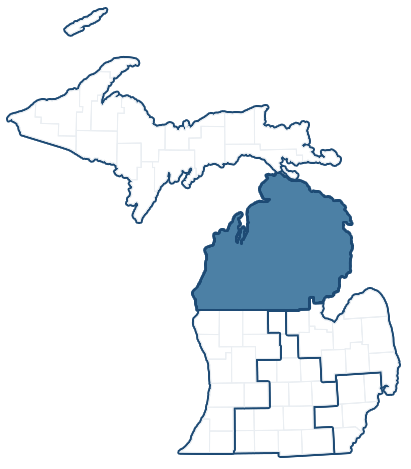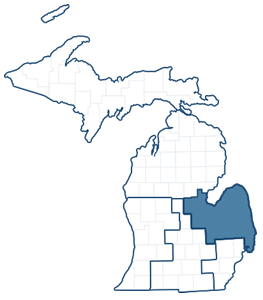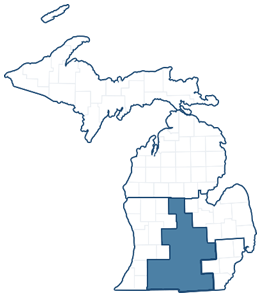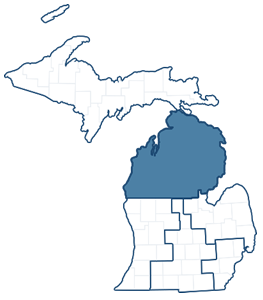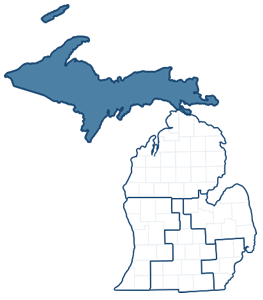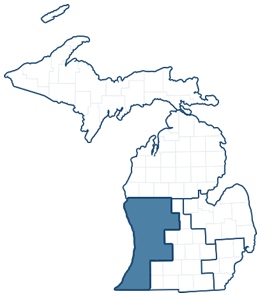Senator Stabenow, Representative Camp, Great Lakes Advocates Say More Action Needed Following Release of Asian Carp Report
Asian Carp Threaten $16 Billion Boating, $7 Billion Fishing Industries
Monday, January 06, 2014Following the release of a new report on ways to stop Asian carp and other invasive species from entering the Great Lakes, U.S. Senator Debbie Stabenow and Congressman Dave Camp today joined with Great Lakes experts and advocates to urge that more action be taken to stop the invasive fish that could wreak havoc on the Great Lakes' ecosystem. Stabenow and Camp authored the bipartisan Stop Invasive Species Act that passed in 2012 to require today's Army Corps of Engineers report to be completed two years earlier than previously scheduled. Unfortunately, the Army Corps' proposals for projects that could stop Asian carp from entering the Great Lakes are not yet developed enough to allow work on those projects to begin.
Stabenow and Camp called on the Army Corps to work with Congress to deliver concrete project recommendations that Congress can approve so work to stop the carp can begin as soon as possible.
"We need work to begin on projects to permanently prevent Asian carp from destroying the Great Lakes, and we need it to begin now," said Stabenow. "While this report is a step in the right direction, it's time to move past reports and get moving on actual projects that will stop Asian carp. The Army Corps must fully develop its proposals and continue working with Congress so that action can be taken to protect the Great Lakes and the hundreds of thousands of jobs that depend on them."
"While the report released today focused on a number of options to protect the Great Lakes, it failed to fully develop a permanent solution to prevent Asian carp form destroying the Great Lakes," said Camp. "I am concerned many of the Corps' proposed options rely on undeveloped technology and do not adequately account for the region's transportation needs. More work is needed to completely develop a serious plan to protect the Great Lakes and the jobs and economy they support."
In 2012, President Obama signed Stabenow and Camp's bipartisan Stop Invasive Species Act, requiring the U.S. Army Corps of Engineers to expedite the completion of today's report on possible strategies to permanently prevent Asian carp and other invasive species from entering the Great Lakes. The report (known as the Great Lakes and Mississippi River Interbasin Study or GLMRIS) had originally been scheduled to be completed in late 2015 or early 2016, but the Stop Invasive Species Act required the Corps' to give Congress fully completed proposals for ways to stop invasive species, including Asian carp, at all known Great Lakes entry points by January 2014.
Despite the law requiring the Army Corps to submit a complete report that includes fully developed project plans so work could begin on them, the Army Corps' report only provided conceptual-level details.
Today's report comes in the wake of alarming incidents that illustrate how close Asian carp are to the Great Lakes and how vulnerable the Lakes are to invasion and ecological destruction. In 2013, Asian carp eDNA was discovered in the Wisconsin waters of Lake Michigan and a live carp was caught in Flatfoot Lake near Chicago, located next to the Calumet River, which feeds directly into Lake Michigan. Last month a joint Army Corps and U.S. Fish and Wildlife Service report showed that fish were moving through the electronic barrier in the Chicago Waterway meant to serve as Lake Michigan's last line of defense against the carp. In 2012, the electronic barriers went down temporarily, leaving the Great Lakes unprotected from infestation.
###
Next Article






